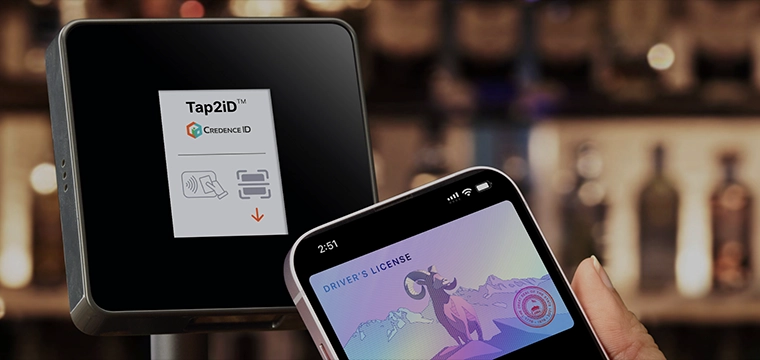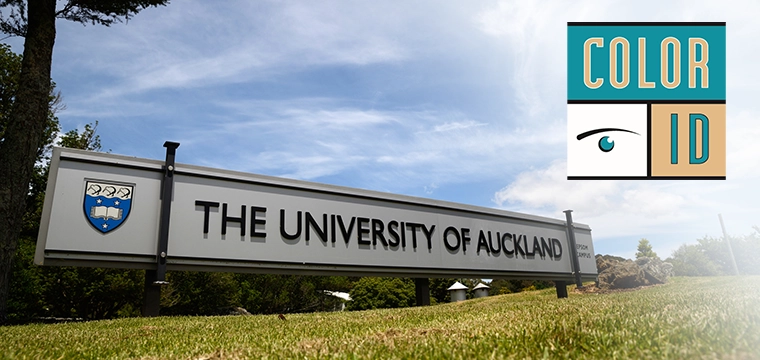ViVOtech has recently completed a pilot project at Santa Clara University, allowing PalmOS-driven PDAs and cellphones to wirelessly send campus debit card account information to a point of sale terminal.
The pilot group paid for products at on-campus locations as if they were using their campus debit card, but instead of swiping the card, they beamed their card information to the reader via infrared technology.
Santa Clara University, a Jesuit university in Northern California and in the heart of Silicon Valley, was chosen for the pilot because of its reputation as an innovative school in Silicon Valley which, for the past five years has run a successful debit card program called ACCESS. The campus uses Blackboard’s card transaction system.
The two-month project, completed on May 17, was small in scope, involving only 25 faculty and staff and a handful of on-campus retail locations including a coffee shop, juice bar, faculty club and staff office. But the future for the system looks bright.
Three different ViVOtech products were involved in the project: ViVOloader, ViVOwallet, and ViVOpay. The wallet software currently runs on Palm-based PDAs and cell phones, “but support is planned for PocketPC PDAs and Symbian- and J2ME-based cell phones,” said Mohammed Khan, ViVOtech President.
The ViVOwallet software stores the card information for download to ViVOloader, a cradle that supports the PDA. It also holds the ACCESS card information using secure RSA and 3-DES encryption technology. ViVOpay is the infrared reader connected to the POS system, in this case, Blackboard’s transaction reader.
According to Mr. Khan, a basic walk-through in setting up the Palm goes like this:
The PDA is placed on the ViVOloader and the ViVOwallet software is downloaded to the device. Once installed, the user transfers their prepaid card information by swiping their card on the ViVOloader. The user enters a password on the Palm device and it is ready to beam payment information via infrared to the ViVOpay terminal. “The transaction is fast, almost instantaneous,” said Mr. Khan.
“What we have seen (via the pilot project) is that 75% of participants found it easy to use and two-thirds thought it was faster to make payments than having their card swiped,” added the ViVOtech president. “People got excited by this. When the guy next in line sees someone using it, he wants to know about it. Paying is a lot faster than an access card and faster than cash.”
Why Palms?
When asked why the choice of Palm devices, Mr. Khan cites that this is what students use. But, he adds, when the program migrates from the pilot to the commercial stage, Pocket PCs and cell phones will also be supported.
Jane Barrantes, director of SCU’s ACCESS card office, said the university obtained a lot of needed information via the pilot project. Since it was new, she said, there were the usual problems. “Some (of the older) models of Palms had difficulty. We found that people haven’t turned over their devices (for new ones). But that was good for them (ViVOtech) to learn,” she said.
She said the program will begin again during the next school year, with an expanded number of on- campus retail establishments and student participants. While no number has been set, Mr. Khan hopes to have 100 to 200 students involved in the next phase.
“We plan to, at least, include all the different foodservice operators,” said Ms. Barrantes who, herself, participated in the pilot program with her Treo PDA. “It worked great.”
She adds, however, that “for it to be a viable commercial product, it will have to work with a much higher percentage of devices.” As Mr. Khan indicated, that’s coming.
“This is the kind of product that is important for the future,” says Blackboard’s manager of business development, Matthew Chitwood. He said that little had to change when ViVOtech installed its system alongside the Blackboard transaction system.
“This infrared technology is very interesting and appealing to us,” he added. Contactless technology and wireless payments lead to a better retailer-consumer relationship at point of sale, he said. “It’s a lot less invasive and transaction time is decreased.”
In the fall we will be watching to see if students really want to use their PDAs and phones to make payments. As anyone walking around a college campus can attest, they obviously like to use them for everything else. And if this early trial was any indication, it seems that these new wireless payments could be the next big thing in campus transaction systems.
Note: ViVOpay RF readers are already being used for other contactless RF payment trials in Orlando, FL, and Dallas, TX (See CR80News, April 2003).




